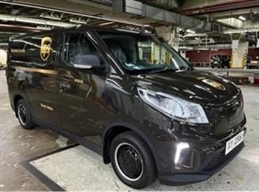
UPS is expanding its sustainability efforts in Hong Kong with a recent announcement that it will accelerate its investment in green vehicles.
In a statement, UPS said by the end of 2023, an additional 15 electric vehicles (EVs) will join the operation. Nine of these EVs are the Peugeot e-Traveller full panel van version, which UPS will be the first logistics company to deploy on the streets of Hong Kong for the pickup and delivery of packages.
"This investment in EVs further signifies UPS' mission of building a green fleet in Hong Kong and contributing to the latest environmental, social and governance (ESG) goals," UPS said.
Electrifying 30% of the entire ground fleet by 2026
UPS said its Hong Kong unit started building a green fleet in 2017, even before the Hong Kong government's introduction of incentives to promote the use of green vehicles.
UPS said over HKD 1 million (US$127,389) was invested by UPS Hong Kong to improve sustainability in its logistics operations last year, and such investments are set to continue to grow in the coming years.
UPS noted that following the addition of 15 new EVs, UPS Hong Kong will now have a fleet of 20 EVs and plans to fully electrify its Wing Hong Operations Center (WHC) in 2023 by replacing all existing diesel-powered vans with EVs.
Looking ahead, UPS has set the target to achieve over 30% ground fleet electrification in Hong Kong by 2026, paving the way to reach the company’s long-term global goal of achieving carbon neutrality by 2050.
"Sustainability is a key focus for UPS worldwide. In Hong Kong, we've made good progress evolving our operations into greener and more sustainable ones, but we're just getting started," said Lauren Zhao, managing director at UPS Hong Kong and Macau.
"We're holding ourselves accountable to ambitious environmental goals, in order to promote a greener, more sustainable future for everyone."
Expand towards global sustainability commitments
UPS in its 2021 Sustainability Report said by 2025, the company aims to achieve 40% alternative fuel used in its ground operations and 25% renewable electricity powering its facilities globally.
By 2035, the goal is to achieve 30% sustainable aviation fuel in its air network, 50% reduction in CO2 per small package, and 100% renewable electricity powering facilities.



